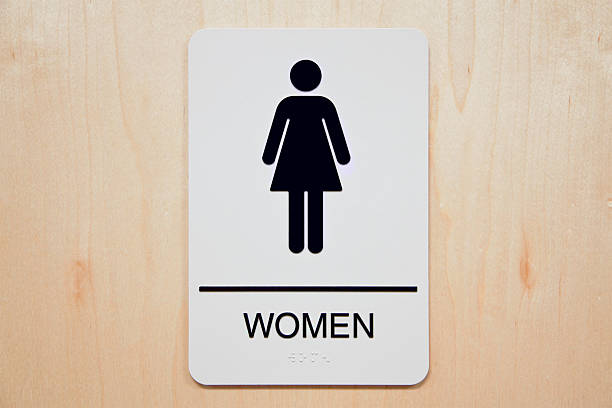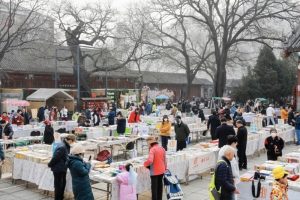Office Worker Lives at Work Due to High Rent SAMPLE
Office Worker Lives at Work Due to High Rent
SAMPLE
18岁女孩住在厕所
18岁女孩住在厕所

AA
AA
AA
AA
Simplified
Traditional



Pinyin



Pinyin
Keywords
女孩 - nǚhái - girl / lass
厕所 - cèsuǒ - toilet / lavatory
家具 - jiājù - furniture
工作 - gōngzuò - to work / job / work / task
钱 - qián - coin / money
元 - Yuán - Chinese Yuan (CNY)
睡觉 - shuìjiào - to go to bed / to sleep
做饭 - zuòfàn - to prepare a meal / to cook
认识 - rènshi - to know / to recognize / to be familiar with / to get acquainted with sb
存 - cún - to deposit / to store / to keep
买房 - mǎifáng - to buy a house
Grammar
在 + Place - Expressing to be located in or at a certain place with "zài + Place"
18岁女孩住在厕所
中国有一个女孩叫小阳(Xiao Yang),她今年18岁,在一个家具店工作。
现在,她住在家具店的厕所里。
在那里,她能睡觉,也能做饭。
Place + 有 + Object - Expressing the existence of an object in a certain place with "Place + yǒu + Object" (similar to "there is" or "there are")
中国有一个女孩叫小阳(Xiao Yang),她今年18岁,在一个家具店工作。
Measure Word - Expressing the number of sth with an object specific measure word in the form of "Number + Measure Word + Noun" (if the number is one, you can omit it and use the measure word by itself)
中国有一个女孩叫小阳(Xiao Yang),她今年18岁,在一个家具店工作。
Subject + 叫 + Name - Expressing sb or sth's name with "Subject + jiào + Name"
中国有一个女孩叫小阳(Xiao Yang),她今年18岁,在一个家具店工作。
Subject + Number + 岁 - Expressing the age of the subject with "Subject + Number + suì"
中国有一个女孩叫小阳(Xiao Yang),她今年18岁,在一个家具店工作。
每月 / 每个月 - Expressing "every month" with "měi yuè / měi gè yuè" (both portray the same meaning and are interchangeable)
她每个月的钱不太多,只有2700元。
那里很小,每个月只要50元。在那里,她能睡觉,也能做饭。
Verb / Adverb / Phrase + 的 + Noun - Expressed to link a noun to a preceding verb or phrase with "Verb / Adverb / Phrase + de + Noun"
她每个月的钱不太多,只有2700元。
不太 + Adj. / Verb - Expressing "not very / not so…" with "bùtài + Adj. / Verb"
她每个月的钱不太多,只有2700元。
只(有) + Verb / Noun Phrase - Expressing "only…" with "zhǐ(yǒu) + Verb / Noun Phrase"
她每个月的钱不太多,只有2700元。
(在)...里 - Expressing "in / inside…" with "(zài)...lǐ"
她住在家具店的厕所里。
Noun / Pronoun + 很 + Adj. - Expressing "very" or to link a noun or pronoun and an adjective with "Noun / Pronoun + hěn + Adj." (sometimes the 很 is translated as "very" but often it is a link between a noun and an adjective)
那里很小,每个月只要50元。
Subject + 要 + Noun - Expressing "to want something" with "Subject + yào + Noun" (negative formed with 不要)
那里很小,每个月只要50元。
Subject + 能 + Verb + Object - Expressing that the subject "can" do a particular action with "Subject + néng + Verb + Object" (means "to be able to" and expresses having a certain ability or having obtained a certain minimum requirement)
在那里,她能睡觉,也能做饭。
Statement 1,也 + Statement 2 - Expressing "also" to link two statements with "Statement 1,也 + Statement 2"
在那里,她能睡觉,也能做饭。
Subject + 都 + Verb / Verb Phrase - Expressing "all / every" to emphasise the quantity with "Subject + dōu + Verb / Verb Phrase" (都 emphasises the quantity or frequent occurrence)
现在,很多人都认识她了。
New Situation + 了 - Expressing that there is a change of state or that the action has just happened "now" with "New Situation + le"
现在,很多人都认识她了。
Subject + 想 + Verb (+ Object) - Expressing "would like to" with "Subject + xiǎng + Verb (+ Object)" (negative formed with 不想)
她说,她想存很多钱买车买房。
Proper Nouns
Idioms
Ready to complete the lesson's exercises?

Complete Assignment Reading
Live dictionary
 Stroke
Stroke Write
Write




























